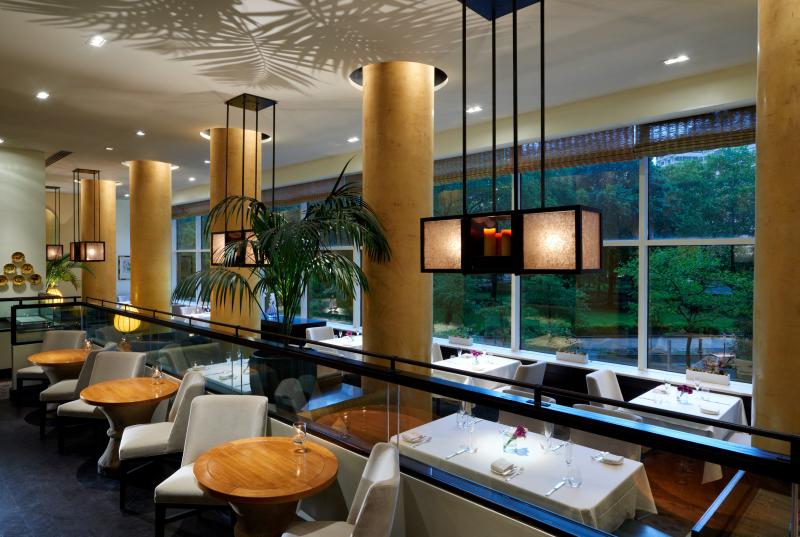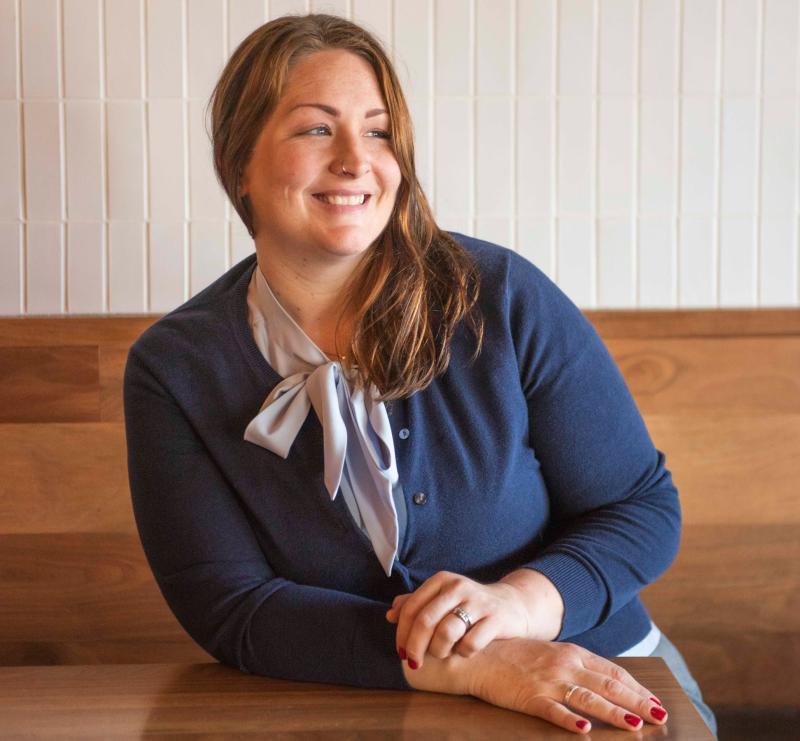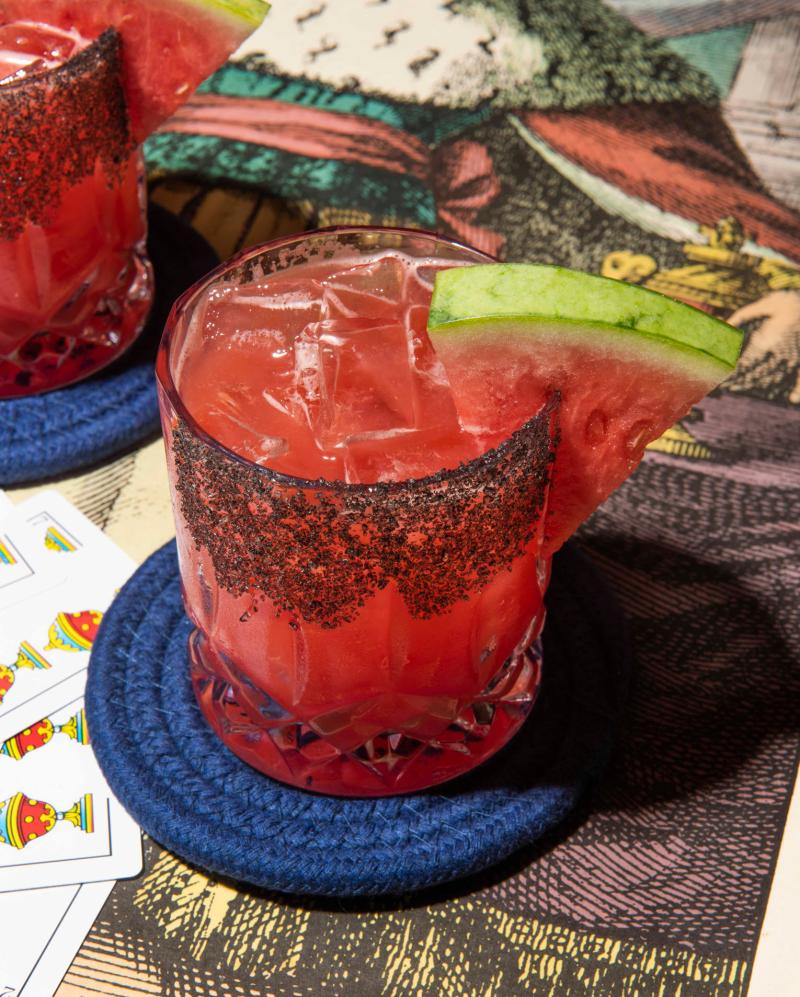How can beverage suppliers support on-premise buyers and beverage directors? Bar & Restaurant explores this topic with some industry experts from both sides.
Samantha Germani oversees the Lacroix restaurant and Library Bar as the food and beverage director of The Rittenhouse Hotel in Philadelphia, where both venues are located. She said there are many new people in positions on both the supplier and buyer sides right now, so after forming relationships pre-pandemic, many in the industry are not dealing with the same people they were working with a few years ago.
Germani said a lot of her friends who used to work on the floor of on-premise venues are now on the supplier side of things, “So they are very good and knowledgeable about how to get and stay in contact or give and receive information, because they were the buyer a year or two ago. They just switched sides now.”

Value People’s Time
Typically, many beverage buyers work in the evenings and most beverage suppliers work in the daytime. So, if a supplier wants to connect with a buyer at a certain time, Germani said they might not even be awake, or they may not have the same days off as the average person.
“There's not always that immediate call and response because you're not working the same hours,” said Germani. “A lot of suppliers are not saying, ‘Hey, Monday morning at 9 a.m., I need your orders in’ because they're probably not awake to put an order in or to make sure it's correct.” So, it’s always important to remember this and value people’s time.
Germani added that a lot of suppliers and buyers do not meet in person anymore, and the relationship is now virtual. “A lot of buyers – they're not just doing one job anymore,” she explained. “They're not just buyers or purchasers. They're probably the wine person and the GM or the wine person in charge of all operations. So, a lot of my guys will send me reminder emails or calendar invites,” she said, which is always helpful.
According to Germani, setting up and maintaining buyer/supplier appointments is key. In fact, her suppliers also allow her to communicate with her over the phone or through text message whenever she needs, especially “…where I don't have to taste everything that I'm buying, but I do need a conversation with my suppliers. I'm relying on them to be highly honest with their wines or beers that they're trying to sell me.”
Split Buying Minimums Across Properties
Buying has become a completely different ballgame over the last two-and-a-half years, and Suzanne Miller-Smith, the general manager and beverage director of Copas in San Francisco, said she’s seeing things she’s never seen before in her 15 years of beverage buying.
Miller-Smith suggested that suppliers allow on-premise buyers with multi-unit operations to split their buying minimums across the properties and help to bill the properties accordingly.
“Lowered sales coupled with higher buying minimums is making it very challenging for operators to meet the pour cost and profit averages we have become accustomed to,” said Miller-Smith. “Much of this also lies on the distributor side of things, but it’s the responsibility of suppliers to support distributors in ways that they can better sustain relationships with their buyers.”
Miller-Smith said that many necessary or critical items are sometimes out of stock. This is making it even harder for buyers to meet raised minimums from distributors. Miller-Smith said Copas, for example, has to have two to three backup plans to ensure that everything runs successfully, and this usually leads to inconsistencies and extra work for staff. She said distributors are often not actually aware of when product will be arriving from suppliers.

Marketing Support Is Vital
Miller-Smith offered some advice for beverage suppliers, in terms of working with on-premise beverage buyers:
- Help bar and restaurant operators plan happy hours, tasting events and guest bar spots, Miller-Smith noted. Many operators are still financially recovering and battling the swings of COVID-19 surges. They’re working on limited resources across the board, so any and all support from all suppliers still helps, she explained.
- Encourage and help implement bar and brand happy hours, as they’ve always been a staple in the industry and they are truly helpful right now, according to Miller-Smith. She said she wants to see suggestions for social media posts and engagement from suppliers and also brands, as one of method of support for operators and to reach customers.
- Miller-Smith also wants to see point-of-sale support. She said many bar and restaurant operators are more than happy to accept branded glassware, napkins, outdoor umbrellas, chalkboard signs – anything that can help them fight this fight, promote a beverage brand, and increase sales.

Collaboration Amongst On-Premise Suppliers and Buyers Is Key
Bill Meissner, president and CMO of Splash Beverage Group, a portfolio company of beverage brands, said suppliers and on-premise beverage buyers have aligned goals. Both strive to present their product offerings in the most attractive way to the on-premise customer and to grow their volume and profitably.
“If the supplier comes with solutions that seek to increase and grow the on-premise operator’s business, rather than simply dividing the existing business in their favor, the relationship will flourish,” shared Meissner. “Collaboration with the operator’s insights about their customer base, and the supplier’s promotional resources, can drive great success for both.”
Most on-premise buyers/operators have massive workloads and, from Meissner’s observation, dwindling administrative support. “To help drive successful win-win growth programs on-premise, they must be turn-key in nature and relevant to the specific customer profile of the bar or restaurant,” Meissner said. “Particularly for multi-unit operations, the programs must provide plenty of time to execute properly and be designed with deployment-ease for the bar or restaurant staff to organize.”
One best practice for all successful on-premise programs is to have a social media component baked into the plan, as Miller-Smith alluded to. If the supplier’s or brand’s engagement program can get the on-premise customers to post and share their enjoyment of the beverage brand and the venue’s environment – through pictures and captions across social networks – Meissner said it can drive new awareness and traffic for the on-premise location.
Helpful Supplier Programs for On-Premise Buyers/Operators Is Important
Joyce and Raissa De Haas, flavor experts and the founders of Double Dutch, Europe’s premium tonic brand that just made its debut in the United States, said suppliers can help on-premise buyers by offering consultations in the menu development process. Now more than ever, bars and restaurants are looking for great serves, they explained, that are easy and quick to produce and offer consistency to the serve across different venues, multi-operations and chains, and rotating staff.
The two experts noted that suppliers can also suggest new serves for different occasions and holidays, and accompany them with special activations, in addition to drawing inspiration from consumer and customer insights.
Chris Bidmead, founder of Bar Methods, a program that focuses on education and consulting for the bar and restaurant industry, said there’s a wealth of education and brand knowledge that suppliers can make available to on-premise beverage buyers and operators. He said this is especially beneficial for on-premise venues that are “category focused,” such as tequila and whiskey bars, or more cocktail-focused establishments.
Bidmead suggested the biggest thing that a supplier can do to help accounts and buyers is to really share knowledge and help identify where they can support the on-premise venue and management. His best supplier relationships have developed when he really understood the on-premise venue’s needs and offerings, as well as other insights, and was able to adjust his suggested beverage programs accordingly.
In the End, Providing Quality Products Is What Matters the Most
Alan Dietrich, CEO of Crater Lake Spirits – spirits that are small-batch, handcrafted in Bend, Ore. – said because of the federal three-tier system, of course, distributors control all access to retailers. Any support a supplier offers – financial or otherwise – is dependent on how the distributor actually chooses to pass the support along.
“A couple of direct support avenues we have used have been social media support and support of charities that the account supports,” said Dietrich. “Underwriting staff events, such as a staff appreciation party, is also a good way to deepen a supplier-account relationship,” said Dietrich.
The most important consideration is the legality of any support, though. “Most states have some sort of limits and restrictions on the scope and value of direct brand support to retailers,” said Dietrich. “Most quid-pro-quo is illegal. The intent is to avoid pay-to-play schemes with big brands buying shelf and bar space to the exclusion of smaller brands,” he said.
In the end, the best thing a supplier can do is provide quality products at reasonable prices at create awareness. “If the customers love your product, then the retailer benefits,” said Dietrich. “Beyond that, it is all about the relationship. Is your rep helping solve problems? Are you empowering the distributor reps to offer support? Does your team respect the account staff?”
Erin Flynn Jay is a reporter and publicist based in Philadelphia. She’s a Bar & Restaurant contributor, and some of her other writing credits include Next Avenue and Woman’s World, among many others.
Plan to Attend or Participate in the
Vibe Conference, Feb. 27 – March 1, 2023
To learn more about the latest trends, issues and hot topics, and to experience and taste the best products within the on-premise beverage community, plan to attend the Vibe Conference, Feb. 27 to March 1, 2023 at the Sheraton San Diego Hotel & Marina. Visit VibeConference.com.
To book your sponsorship or exhibit space at the Vibe Conference, contact:
Fadi Alsayegh
Sales & Sponsorships
Email: [email protected]
Phone: 917-258-5174
Donna Bruns
Sales & Sponsorships
Email: [email protected]
Phone: 936-522-6932
Charlie Forman
Sales & Sponsorships
Email: [email protected]
Phone: 845-262-1041
Connect and follow Questex’s Vibe Conference and community at Facebook and LinkedIn.
